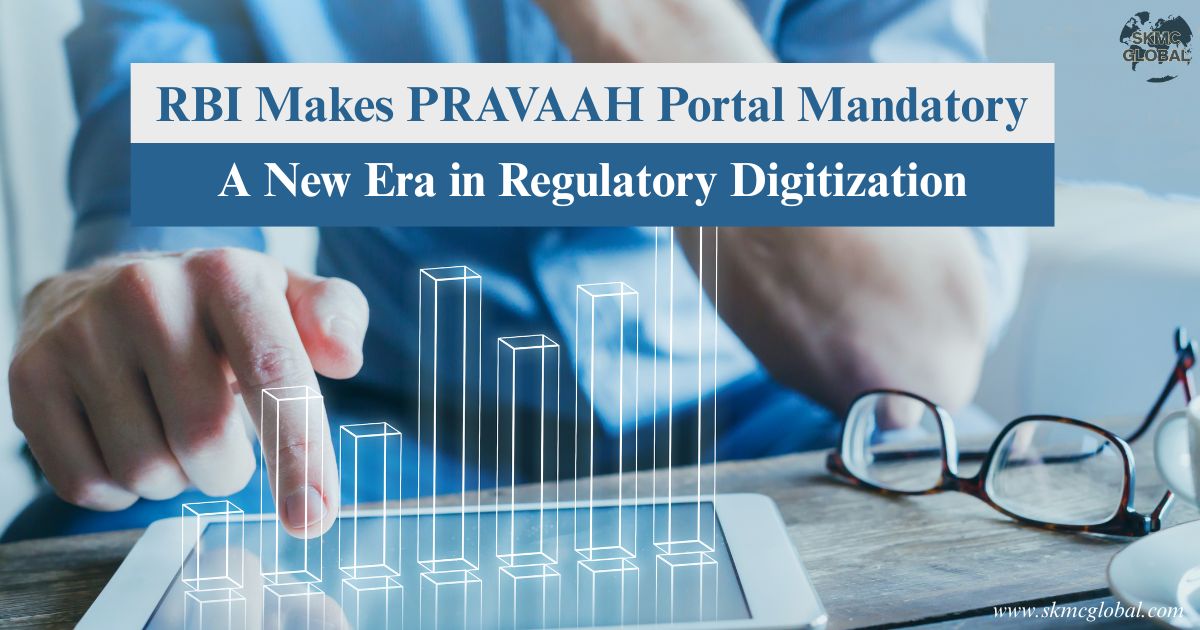
ICFR Applicability as per the Companies Act, 2013
With corporate governance in India in the post-reform period, internal control systems have become more important than ever before. One of the most significant reforms under the Companies Act, 2013 was the provision to make Internal Controls over Financial Reporting (ICFR) applicability a statutory requirement. ICFR is not just a regulatory box check—it's a foundation that enhances the quality of financial reporting and maintains investor confidence. ICFR scope, applicability, and relevance, as well as the role and requirement of ICFR audit, are the topics of discussion in this article.
What is ICFR?
Internal Controls over Financial Reporting, or ICFR, refers to the group of internal procedures a company has in place to guarantee its financial reports are accurate and do not include a material misstatement. Controls avoid mistakes, alert against fraud, and ensure compliance with accounting rules. ICFR includes control over how transactions are initiated, recorded, processed, and ultimately reported on the financial statements.
Unlike wider-operational or compliance-oriented controls, ICFR is aimed at financial reporting-related controls alone. It involves documentation, segregation of duties, reconciliations, approval procedures, and IT controls that are directly related to financial reporting. Through strong ICFR, companies provide assurance that users of financial statements such as investors, lenders, and regulators are able to rely on the financial information reported.
Legal Framework under the Companies Act, 2013
ICFR section in companies act 2013 was enacted and introduced statutory requirements related to ICFR for management and auditors. The Act mandates under Section 134(5)(e) that the Board of Directors place in the BRS an assertion that they have established internal financial controls and that these controls are operating effectively and are adequate. Hence, design and maintenance of ICFR became a statutory mandate of company management.
Besides, under Section 143(3)(i), the statutory auditor is required to report on whether the company has adequate internal financial controls in place in relation to financial statements and if such controls were functioning. This requirement introduces an additional layer of diligence and responsibility on companies by the imposition of an independent ICFR audit by external auditors.
ICFR vs IFC: What's the Difference?
Although IFC and ICFR are generally stated to be interchangeable terminology, they are not synonymous. IFC is a broader term that encompasses all types of control in an organization—operational control, compliance control, and financial report control. ICFR is a specialized subset of IFC with a focus on financial reporting reliability.
Although Section 134 refers to IFC as a whole, the Section 143(3)(i) necessary ICFR audit pertains specifically to financial reporting controls. The ICAI Guidance Note on Audit of Internal Financial Controls over Financial Reporting provides support for auditors with a focused perspective on this more limited area.
ICFR applicability under Companies Act
ICFR applicability is required for most of the companies in India but with some exceptions on the size and type of the company. For listed companies, both statutory ICFR audit and management reporting are mandatory. This is due to increased public accountability and visibility to stakeholders.
For unlisted public companies, the management is required to establish and report on ICFR. The reporting requirement on ICFR by the auditor is, however, subject to certain threshold levels. If the company is exempt (turnover below ₹50 crore and borrowings below ₹25 crore), then auditing of ICFR may not be required.
For non-public companies, the management is still required to establish and maintain ICFR. But audit of ICFR is not mandatory if the company is:
- Neither a subsidiary nor holding company of a listed company;
- Less than ₹50 crore of turnover; and
- Less than ₹25 crore of borrowing during any part of the financial year.
Nevertheless, exempt companies are also encouraged to voluntarily adopt ICFR practices as it adds to the internal governance and reduces financial risk.
Why ICFR Audit is Important
ICFR audit is an objective examination of a company's internal controls over financial reporting. It is supposed to conclude whether there are any deficiencies that will result in a material misstatement of the financial statements. Through testing and observation, the auditor provides an opinion whether the controls are properly designed and are operating effectively throughout the reporting period.
The merit of an ICFR audit lies in its ability to pinpoint control gaps and enhance accountability. To investors, financial institutions, and other stakeholders, an unqualified opinion on ICFR enhances confidence in financial reporting by the company. To companies, engaging in preparations for an ICFR audit may reveal areas of inefficiency and inspire improvements to systems.
Implementation Challenges
Although ICFR applicability is valid, its implementation usually becomes problematic for companies. Among numerous problems encountered, one of the major ones is where due documentation of controls over processes is not available. Under these circumstances, auditors are not able to evaluate the effectiveness. Poor IT controls or poor financial system integration could also be a major hurdle, which can make manual controls, which are otherwise good, ineffective.
Small and medium-sized businesses also do not have sufficient in-house expertise. Building up an ICFR system could require the services of experienced professionals who possess a background in control testing, risk assessment, and process improvement. Also, resistance to change—especially when additional compliance requirements are perceived as being mandated—is bound to slow down the introduction of effective ICFR practices.
Best Practices for Strengthening ICFR
To overcome such challenges, business entities ought to start by adopting an accepted control framework such as COSO. This ensures consistency and extensive coverage of financial processes. Standard risk assessments help in charting points of high risk where control failure would have more far-reaching consequences. Automation of controls where possible is also encouraged because it reduces opportunities for human failure.
Staff training on internal controls and why they are significant and regular internal audits are also valuable strategies. Companies can also utilize experts' assistance to prepare themselves for ICFR audits and implement best practices.
Conclusion
In summary, ICFR applicability and it's implementation are key component of India's infrastructure for financial reporting. Mandated as per Companies Act, 2013, it subjects the management of companies as well as auditors to the pressure of ensuring not only that internal controls exist but that they are working properly as well. Although not every company is required to get its ICFR audited, having a robust internal control system is a wise decision for any company, large or small, listed or unlisted.
Implementation of ICFR cannot be seen as a traditional measure of compliance. Instead, it has to be identified as an investment in long-term sustainability, risk management, and corporate governance. Firms that embrace strong ICFR systems as part of their business are likely to survive regulatory examinations, build stakeholder confidence, and uphold financial discipline.
Recent Posts
-
 The Step-by-Step NGO Registration Process in India...
Jan 17,2026
The Step-by-Step NGO Registration Process in India...
Jan 17,2026
-
 Secretarial Audit for Unlisted and Private Compani...
Dec 19,2025
Secretarial Audit for Unlisted and Private Compani...
Dec 19,2025
-
 How to Get CTE and CTO under Environmental Laws in...
Nov 27,2025
How to Get CTE and CTO under Environmental Laws in...
Nov 27,2025
-
 Step by Step guide for appointment of Independent ...
Nov 06,2025
Step by Step guide for appointment of Independent ...
Nov 06,2025
-
 Liaison Office vs Branch Office: A comparative ana...
Sep 02,2025
Liaison Office vs Branch Office: A comparative ana...
Sep 02,2025
-
 Role of Shareholders Agreement in Startups and Inv...
Aug 30,2025
Role of Shareholders Agreement in Startups and Inv...
Aug 30,2025
-
 Setting Up a Wholly Owned Subsidiary (WOS) in Indi...
Aug 12,2025
Setting Up a Wholly Owned Subsidiary (WOS) in Indi...
Aug 12,2025
-
 Arbitration v/s Litigation in India...
Aug 05,2025
Arbitration v/s Litigation in India...
Aug 05,2025
-
 Declaration of Dividend under Companies Act, 2013...
Aug 02,2025
Declaration of Dividend under Companies Act, 2013...
Aug 02,2025
-
 What is MSME Form 1 and how it can be filed?...
Aug 01,2025
What is MSME Form 1 and how it can be filed?...
Aug 01,2025
-
 What is CSR and how to compute the contribution am...
Jul 31,2025
What is CSR and how to compute the contribution am...
Jul 31,2025
-
 Process for removal of company auditor under Compa...
Jul 31,2025
Process for removal of company auditor under Compa...
Jul 31,2025
-
 What is SBO Compliance and when it is needed?...
Jul 29,2025
What is SBO Compliance and when it is needed?...
Jul 29,2025
-
 Role of Key Management Personnel and their appoint...
Jul 28,2025
Role of Key Management Personnel and their appoint...
Jul 28,2025
-
 Registering a Partnership Firm in India...
Jul 28,2025
Registering a Partnership Firm in India...
Jul 28,2025
-
 Procedure to strike off a company...
Jul 28,2025
Procedure to strike off a company...
Jul 28,2025
-
 sox and internal control...
Jul 17,2025
sox and internal control...
Jul 17,2025
-
 ICFR Applicability as per the Companies Act, 2013...
Jul 15,2025
ICFR Applicability as per the Companies Act, 2013...
Jul 15,2025
-
 Concept of Sweat Equity Shares and its uses...
Jun 25,2025
Concept of Sweat Equity Shares and its uses...
Jun 25,2025
-
 Whether loans and borrowing are considered as depo...
Jun 18,2025
Whether loans and borrowing are considered as depo...
Jun 18,2025
-
 What are the major compliance for unlisted compani...
Jun 05,2025
What are the major compliance for unlisted compani...
Jun 05,2025
-
 A Guide to Compensation to Director in Indian Corp...
Jun 04,2025
A Guide to Compensation to Director in Indian Corp...
Jun 04,2025
-
 Loans to Company Directors- A Legal and Ethical Fr...
Jun 04,2025
Loans to Company Directors- A Legal and Ethical Fr...
Jun 04,2025
-
 Top 7 Things You Must Know About External Commerci...
May 16,2025
Top 7 Things You Must Know About External Commerci...
May 16,2025
-
 Integrating CSR into Your Business Model:A Step-by...
May 14,2025
Integrating CSR into Your Business Model:A Step-by...
May 14,2025
-
 What are the applicable Labour Laws in HR (Human R...
May 14,2025
What are the applicable Labour Laws in HR (Human R...
May 14,2025
-
 Unveiling the PRAVAAH Portal: A Comprehensive Guid...
Apr 18,2025
Unveiling the PRAVAAH Portal: A Comprehensive Guid...
Apr 18,2025
-
 FLA Return and its compliance...
Feb 08,2022
FLA Return and its compliance...
Feb 08,2022
-
 Process of closure of Branch office in India...
Dec 30,2021
Process of closure of Branch office in India...
Dec 30,2021
-
 Steps to Shut down the Liaison Office in India...
Sep 14,2021
Steps to Shut down the Liaison Office in India...
Sep 14,2021
-
 Procedure for closure of Project Office in India...
Aug 10,2021
Procedure for closure of Project Office in India...
Aug 10,2021




